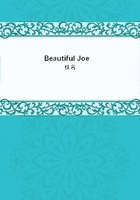
第80章 A JEALOUS OX(1)
MR. WOOD had a dozen calves that he was raising, and Miss Laura sometimes went up to the stable to see them. Each calf was in a crib, and it was fed with milk. They had gentle, patient faces, and beautiful eyes, and looked very meek, as they stood quietly gazing about them, or sucking away at their milk. They reminded me of big, gentle dogs.
I never got a very good look at them in their cribs, but one day when they were old enough to be let out, I went up with Miss Laura to the yard where they were kept. Such queer, ungainly, large-boned creatures they were, and such a good time they were having, running and jumping and throwing up their heels.
Mrs. Wood was with us, and she said that it was not good for calves to be closely penned after they got to be a few weeks old.
They were better for getting out and having a frolic. She stood beside Miss Laura for a long time, watching the calves, and laughing a great deal at their awkward gambols. They wanted to play, but they did not seem to know how to use their limbs.
They were lean calves, and Miss Laura asked her aunt why all the nice milk they had taken had not made them fat. "The fat will come all in good time," said Mrs. Wood. "A fat calf makes a poor cow, and a fat, small calf isn't profitable to fit for sending to the butcher. It's better to have a bony one and fatten it. If you come here next summer, you'll see a fine show of young cattle, with fat sides, and big, open horns, and a good coat of hair. Can you imagine," she went on, indignantly, "that any one could be cruel enough to torture such a harmless creature as a calf?""No, indeed," replied Miss Laura. "Who has been doing it?""Who has been doing it?" repeated Mrs. Wood, bitterly; "they are doing it all the time. Do you know what makes the nice, white veal one gets in big cities? The calves are bled to death. They linger for hours, and moan their lives away. The first time I heard it, I was so angry that I cried for a day, and made John promise that he'd never send another animal of his to a big city to be killed. That's why all of our stock goes to Hoytville, and small country places. Oh, those big cities are awful places, Laura. It seems to me that it makes people wicked to huddle them together. I'd rather live in a desert than a city. There's Ch o. Every night since I've been there I pray to the Lord either to change the hearts of some of the wicked people in it, or to destroy them off the face of the earth. You know three years ago I got run down, and your uncle said I'd got to have a change, so he sent me off to my brother's in Ch o. I stayed and enjoyed myself pretty well, for it is a wonderful city, till one day some Western men came in, who had been visiting the slaughter houses outside the city. I sat and listened to their talk, and it seemed to me that I was hearing the description of a great battle.
These men were cattle dealers, and had been sending stock to Ch o, and they were furious that men, in their rage for wealth, would so utterly ignore and trample on all decent and humane feelings as to torture animals as the Ch o men were doing.
"It is too dreadful to repeat the sights they saw. I listened till they were describing Texan steers kicking in agony under the torture that was practised, and then I gave a loud scream, and fainted dead away. They had to send for your uncle, and he brought me home, and for days and days I heard nothing but shouting and swearing, and saw animals dripping with blood, and crying and moaning in their anguish, and now, Laura, if you'd lay down a bit of Ch o meat, and cover it with gold, I'd spurn it from me. But what am Isaying? you're as white as a sheet. Come and see the cow stable.
John's just had it whitewashed."
Miss Laura took her aunt's arm, and I walked slowly behind them.
The cow stable was a long building, well-built, and with no chinks in the walls, as Jenkins's stable had. There were large windows where the afternoon sun came streaming in, and a number of ventilators, and a great many stalls. A pipe of water ran through the stalls from one end of the stable to the other. The floor was covered with sawdust and leaves, and the ceiling and tops of the walls were whitewashed. Mrs. Wood said that her husband would not have the walls a glare of white right down to the floor, because he thought it injured the animals' eyes. So the lower parts of the walls were stained a dark, brown color.
There were doors at each end of the stable, and just now they stood open, and a gentle breeze was blowing through, but Mrs. Wood said that when the cattle stood in the stalls, both doors were never allowed to be open at the same time. Mr. Wood was most particular to have no drafts blowing upon his cattle. He would not have them chilled, and he would not have them overheated. One thing was as bad as the other. And during the winter they were never allowed to drink icy water. He took the chill off the water for his cows, just as Mrs. Wood did for her hens.